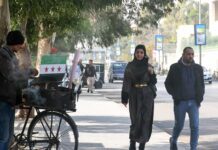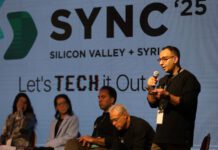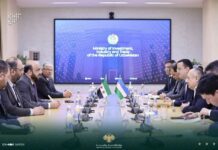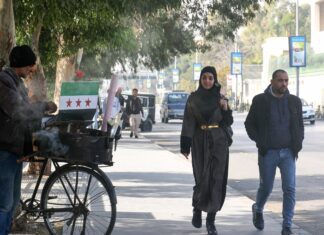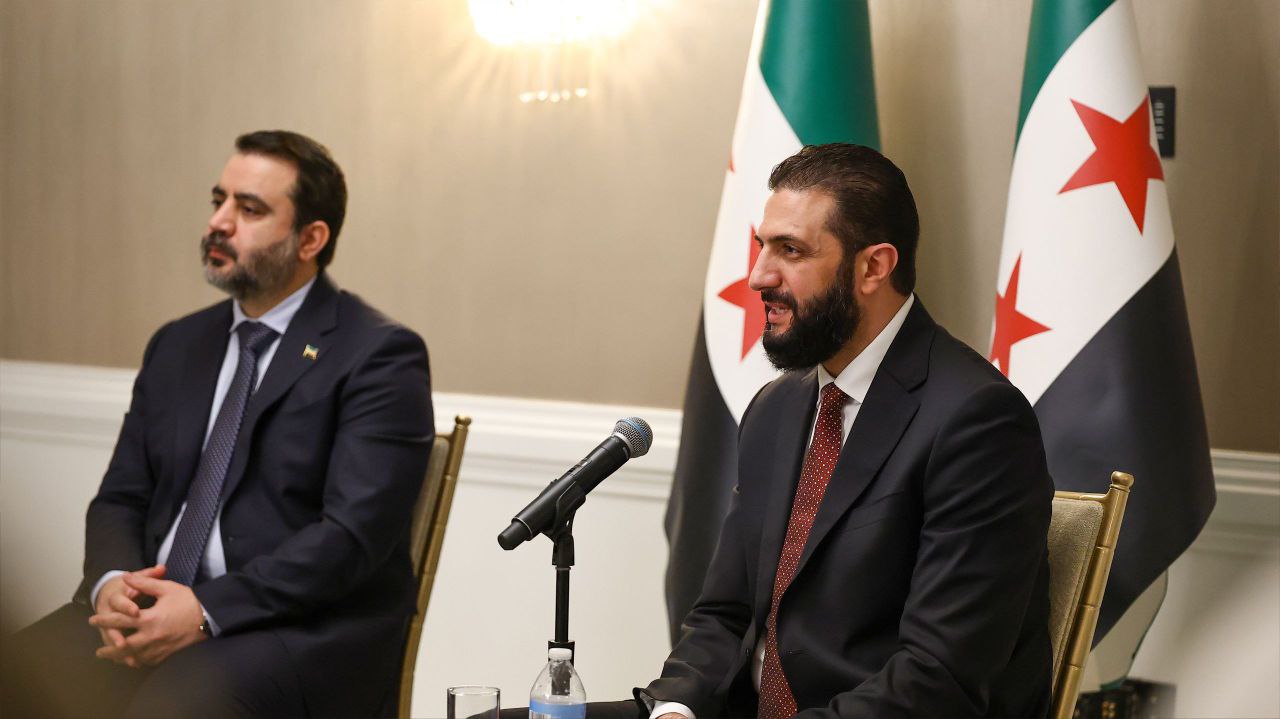
Syrian President Ahmad Sharaa continued his high-profile visit to Washington on Sunday, meeting with representatives of the Syrian community and senior US officials ahead of his scheduled closed-door meeting with President Donald Trump. The visit, the first by a Syrian head of state to the White House, marks a turning point in the country’s efforts to reengage with the West after more than a decade of war and isolation.
During a gathering with members of the Syrian diaspora in Washington, Sharaa emphasized the importance of maintaining close ties between Syrians abroad and their homeland. “Syrians must remain connected to their country and defend its just causes,” he said, according to the Syrian Presidency’s official statement.
The event was attended by Foreign and Expatriates Minister Asaad al-Shaibani and US Special Envoy to Syria Thomas Barak, who praised the Syrian community’s role in strengthening relations between Damascus and the international community. Minister al-Shaibani told attendees that “realism is the foundation of government policy,” describing the current administration as “one team working toward a modern and developed Syria.”
Economic Reform Tops the Agenda
Earlier Sunday, Sharaa met with Kristalina Georgieva, managing director of the International Monetary Fund, at IMF headquarters in Washington. The meeting focused on potential cooperation to support Syria’s economic recovery. According to a statement released by the Syrian Presidency, discussions centered on technical assistance, capacity building, and financial reform.
“It was a pleasure to welcome President Ahmad Sharaa,” Georgieva wrote on X. “We discussed the path of economic transformation that the Syrian people need and that the government is working to achieve.”
Syrian Finance Minister Muhammad Barneh described the visit as “historic,” writing on Facebook that it would “positively impact the development of Syria’s relationship with the IMF.” He added that the government counts on IMF support to advance economic reform and boost growth after years of sanctions and conflict.
Shifting Politics and Regional Calculations
Sharaa’s US visit comes amid debate over whether Damascus is pursuing tactical diplomacy or a deeper strategic shift. Analysts have noted Syria’s recent outreach to Western institutions, including the UN and the IMF, alongside discreet contacts with regional neighbors such as Israel.
Since the fall of the Assad regime nearly a year ago, Damascus has pursued a “pragmatic” path aimed at equal lateral diplomacy. However, questions remain over its long-term stance on sensitive issues such as the Golan Heights. Officials in Damascus maintain that the territory remains under Syrian sovereignty, while emphasizing their commitment to regional security and noninterference.
For Washington, the upcoming meeting is expected to focus on stability, reconstruction, and counterterrorism. The White House announced earlier this month that Presidents Trump and Sharaa will “discuss political developments and efforts to bring peace to the region.”
A Measured Reentry Into the Global Arena
In his remarks to the Syrian community, Sharaa reflected on the nation’s progress since the end of the conflict. “Syria has achieved great accomplishments in 11 months after being completely isolated,” he said, noting that rebuilding the country requires “unity among Syrians inside and outside.”
As Syria seeks reintegration into international institutions and a gradual lifting of sanctions, the outcome of the Trump-Sharaa meeting will likely define the next phase of Damascus’ reemergence on the global stage.

